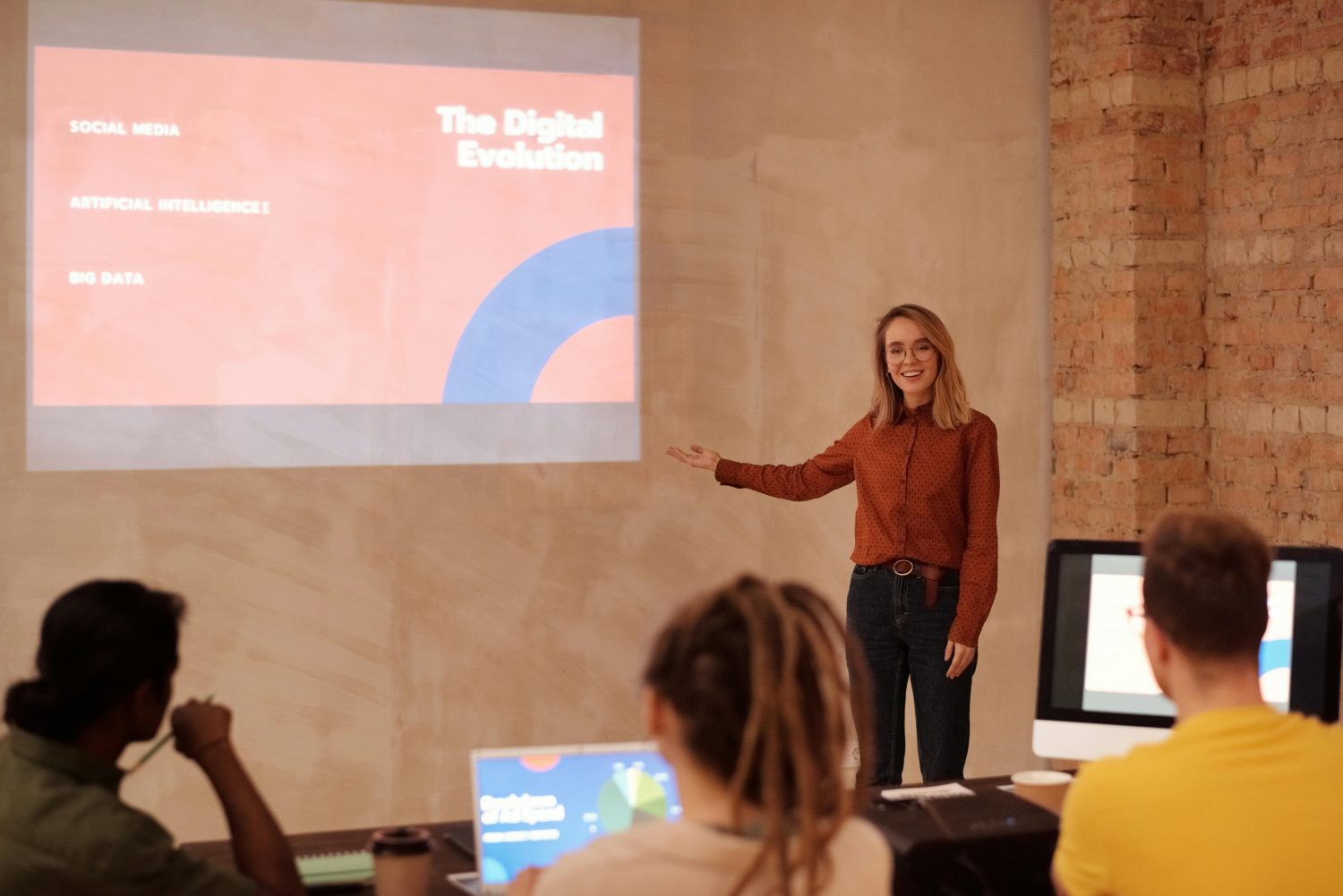Small business owners have been promised a content creation revolution with the advent of AI. The allure of effortlessly generating content using tools like ChatGPT and watching clients flock to their businesses seemed too good to be true. Unfortunately, this promise has led to an unexpected challenge: an oversaturation of low-quality, AI-generated content flooding the internet.
As AI writing assistants became ubiquitous, many content creators, marketers, and business owners began relying heavily on these tools to produce vast amounts of content quickly. However, this approach has resulted in a sea of generic, uninspired material that fails to engage audiences or build trust. For small businesses still depending solely on AI for content marketing, it’s time to recognize that this strategy is no longer effective.
But all is not lost. There’s a way for savvy business owners to leverage AI to their advantage and become the go-to authority in their niche. This article will explore how AI is reshaping the content creation landscape, why it can potentially harm your business, and how you can strategically use AI alongside the right kind of content to attract and retain clients.
The Evolution of Content Marketing
To understand the current content crisis, we need to look back at the evolution of content marketing. In 2010, the book “Inbound Marketing” introduced a seemingly perfect strategy: create numerous blog posts, rank high on Google, and watch the leads pour in effortlessly. However, this approach had a significant drawback – creating quality content was incredibly time-consuming and resource-intensive.
Fast forward to November 2022, when ChatGPT burst onto the scene, promising to solve all content-related problems. Marketing gurus enthusiastically promoted the use of AI to produce massive amounts of content and dominate the competition. Unfortunately, this led to an abundance of low-quality, AI-generated material flooding the internet.
The Pitfalls of AI-Generated Content
The overreliance on AI for content creation has resulted in several issues:
- Lack of originality: AI-generated content often regurgitates existing information without adding unique insights or perspectives.
- Generic tone: AI-written articles tend to sound similar, lacking the personal touch and expert insights that make content engaging.
- Overuse of certain phrases: AI tools often latch onto specific words or phrases, leading to repetitive and unnatural-sounding content.
- Absence of real-world experience: AI-generated content lacks the personal anecdotes and practical knowledge that come from firsthand experience.
These issues extend beyond written content to videos and social media posts as well. AI-generated scripts, voiceovers, and even AI avatars are becoming increasingly common, but they often lack the human spark that makes content truly engaging.
The Commodity Content Trap
One of the biggest problems with AI-generated content is falling into the “commodity content trap.” This occurs when businesses produce large volumes of content that lacks unique perspectives, expert opinions, and real-life experiences. The result is a sea of indistinguishable content that fails to capture audience attention or build brand loyalty.
Generic content is like fast food – it may satisfy an immediate craving for information, but it’s quickly forgotten and doesn’t inspire return visits. In contrast, high-quality content is like a memorable meal at a favorite restaurant – it not only answers questions but also creates a lasting impression and encourages repeat engagement.
The Impact of AI on SEO
Google’s AI-powered search capabilities are dramatically changing the SEO landscape. The search giant is now using AI to answer queries directly on the results page, reducing the need for users to click through to websites. This shift is having a significant impact on organic traffic for many businesses, including major players like NerdWallet, which reported a 15-18% drop in organic traffic in just one quarter.
This development is upending traditional SEO strategies. The once-effective approach of creating “how-to” articles and comprehensive guides to attract visitors is losing its effectiveness as users can now get quick answers directly from Google’s search results page.
The Power of Authenticity
In the AI era, trust has become the new SEO. People are increasingly skeptical of generic, AI-generated content and are seeking authentic, expert-driven information. This shift is evident in the rising popularity of video content and podcasts, where audiences can see and hear real experts sharing their knowledge and experiences.
Generic AI content is eroding trust and engagement. When readers encounter content that sounds like it could have been written by anyone (or anything), they’re less likely to view the source as an authority or return for more information. This lack of engagement translates to fewer leads and sales for businesses relying on AI-generated content.
The Power of Personality-Led Content
To stand out in the age of AI, businesses need to shift their focus from commodity content to personality-led content. This approach leverages the power of authentic, human-driven content to build trust and engagement with audiences. Here are some effective strategies:
- Video Podcasts: Combine the intimacy of audio with the discoverability of video by creating video podcasts and publishing them on platforms like YouTube.
- Long-Form Videos: Focus on creating videos that are 5 minutes or longer to showcase your personality and expertise fully.
- Storytelling: Wrap simple information and teaching points in personal stories, client experiences, and unique analogies.
- Authenticity: Be yourself on camera. You don’t need to be overly charismatic; being genuine and sharing real experiences is what matters most.
Leveraging AI for Content Creation
While AI-generated content alone is no longer sufficient, AI can still play a valuable role in content creation. Here’s how to use AI effectively:
- Use AI for basic research and to generate initial talking points.
- Let AI handle about 60-70% of the content framework.
- Focus on adding the remaining 30% yourself, incorporating personal stories, case studies, and unique insights.
Remember, AI can provide a foundation, but it’s your personal touch that will make your content truly valuable and engaging.
The Future of AI and Content Creation
As AI continues to evolve, it’s natural to wonder if it will eventually catch up to human-created content. While AI is improving rapidly, it still lacks the ability to provide genuine experiences, learn from real-world interactions, or bring new insights to the table. AI can simulate these elements, but it can’t replace the authenticity of human experience and connection.
Even as AI technology advances to create more realistic talking head videos or simulate human-like interactions, the demand for authentic, experience-based content from real people is likely to remain strong. Platforms like YouTube are already requiring creators to disclose AI-generated content, indicating a continued preference for human-created material.
In the end, while AI will continue to play a role in content creation, the unique value of real human experiences, hard-won advice, and genuine opinions will always be in demand. By focusing on creating personality-led content that showcases your expertise and authenticity, you can build a loyal audience and stand out in the crowded digital landscape.
Frequently Asked Questions
Q: How can small businesses effectively use AI in their content marketing strategy?
Small businesses can use AI effectively by leveraging it for initial research, generating basic talking points, and creating content frameworks. However, it’s crucial to add personal experiences, unique insights, and authentic storytelling to make the content truly valuable and engaging.
Q: Why is personality-led content more effective than AI-generated content?
Personality-led content is more effective because it builds trust, showcases real expertise, and creates a genuine connection with the audience. It incorporates unique perspectives, personal experiences, and authentic insights that AI cannot replicate, making it more engaging and memorable.
Q: What types of content should small businesses focus on in the AI era?
Small businesses should focus on creating video content, particularly long-form videos and video podcasts. These formats allow for showcasing personality, sharing in-depth knowledge, and building stronger connections with the audience. Additionally, incorporating storytelling and personal experiences into all content types can help businesses stand out.
Q: How is AI affecting SEO strategies for small businesses?
AI is changing SEO by enabling search engines to provide direct answers to queries, reducing the need for users to click through to websites. This shift is making traditional SEO strategies less effective. Small businesses need to focus on creating high-quality, trust-building content that offers unique value beyond basic information.
Q: Will AI eventually replace human-created content entirely?
It’s unlikely that AI will completely replace human-created content. While AI continues to improve, it cannot replicate genuine human experiences, learn from real-world interactions, or provide truly original insights. The demand for authentic, experience-based content from real people is likely to remain strong, even as AI technology advances.








